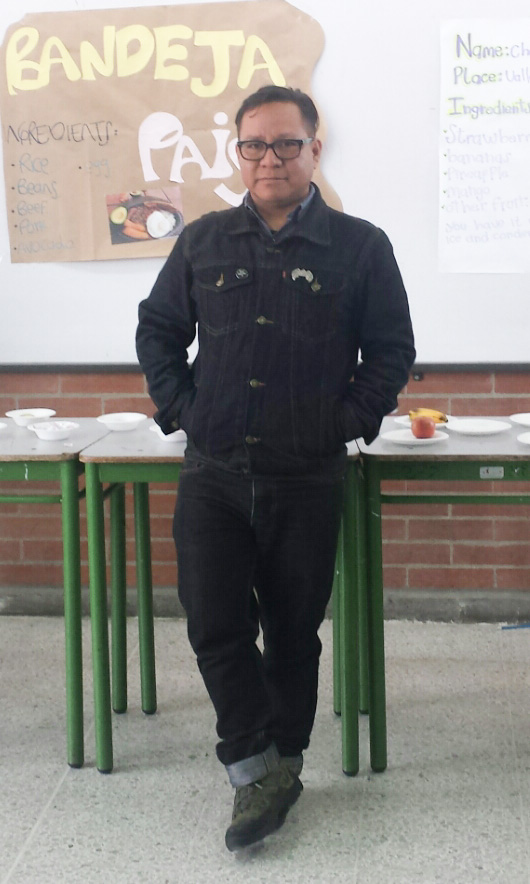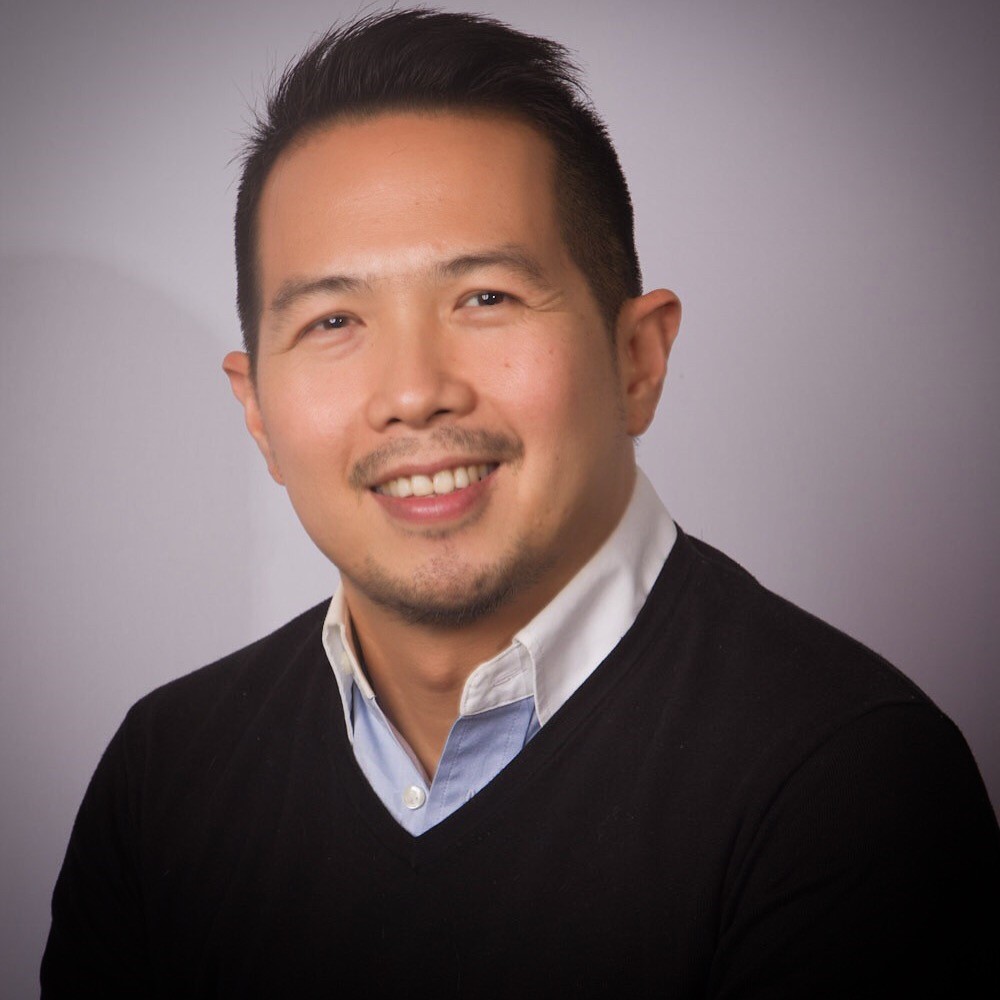TIRF is establishing a new column in its newsletter – TIRF Today – that will provide periodic updates about its grantees. In an effort to help our supporters put a face to the organization, “Grantee Corner” will feature brief news from its current grantees (those who are yet to graduate) and alumni (those who have finished their degrees and submitted their final reports for TIRF).
Such news will include grantees’ recent publications, their new research endeavors, awards they may have received, new positions they have undertaken, and/or personal updates about major life milestones reached.
In this first offering of Grantee Corner, we highlight Yecid Ortega and Ron Darvin. Below, you will find information about their research and their current undertakings.
—————————————————————————————————————————————————————–

Name: Yecid Ortega
Year DDG Awarded: 2019
TIRF Research Topic: Teaching English to Young Learners
Doctoral Institution: University of Toronto – OISE
Doctoral Advisor: Antoinette Gagné
Can you provide a short overview of your dissertation?
Colombia has suffered political turmoil for more than 50 years; violence has trickled down from the streets to classrooms and thus children, particularly those in marginalized communities, have been affected. Education has been the vehicle that attempts to help teachers, students, and administrators to navigate the intricacies and tensions between peace and violence. Typically, history and social studies classes are the ones designated to address these issues in school while English as a foreign language (EFL) teachers traditionally have focused on teaching the content to prepare students to face an internationally oriented market. Although Colombian EFL curricula suggest teachers include peace as a subject in classrooms, it does not necessarily materialize, as teachers keep focusing on preparing students for standardized tests. My critical ethnographic case study investigates how these teachers and students envision, enact, and understand social justice and peacebuilding curriculum (SJPBC) that is in line with what the community needs to fight school violence, both inside and outside the classroom.
Why is your research important to our profession and to the world?
Typically, English teachers are designated to teach students the necessary skills to compete in an uncertain future in a globalized context. Thus, the need to train students to pass a standardized test in English has become the reality of the day-to-day business. However, a group of three English teachers in this study have long decided to counter this narrative with humanizing pedagogies that support students not only in acquiring those English skills but also in becoming social agents of change who seek social benefits for their communities. This research is important in the ELT field, especially in language teacher education, as it provides tangible pedagogical examples to address issues of social justice in violence-affected communities. Teachers and students have created projects that attempted to problematize unemployment, homelessness, drug addiction, teenage pregnancy, and other social issues. These projects motivated and engaged students to learn English in ways that are culturally relevant to their communities.
What are your currently preparing for in your career?
I am finishing my thesis and preparing for my defense. I am writing articles and presenting at various conferences to disseminate the research via different avenues. I also hope to connect with like-minded researchers and educators around the globe to continue my academic career teaching at higher education institutions to expand my research initiative towards social justice and innovation in language teaching and research (https://www.andjustice4all.ca/). My mid- to long-term goals are to teach diverse students in the field of language education and engage in ethnographic and community-based research projects, in which we help one another to advance research that is culturally and linguistically relevant for communities. One way language can be used to celebrate diversity and amplify the voices of those who have been left at the margins will be through the expansion of my podcast (Chasing Encounters: https://soundcloud.com/chasingencounters) and strengthening alternative forms of knowledge production and dissemination.
Yecid also highlighted his work in a video he produced. You can learn more about his SJPBC endeavors here: https://www.youtube.com/watch?v=MAs-_sJs3hM. A summary of his study can also be located on TIRF’s website – click here.
—————————————————————————————————————————————————————–

Name: Ron Darvin
Year DDG Awarded: 2016
TIRF Research Topic: Digital Technology in Language Education
Doctoral Institution: University of British Columbia
Doctoral Advisor: Bonny Norton
Can you provide a short overview of your dissertation?
Drawing on data from an 18-month case study of the digital practices of migrant Filipino students in Vancouver, my dissertation examined how online communicative events are produced through the interaction of users, tools, and contexts. It explored ways power operates in online spaces of language acquisition, and to what extent relations of power shape the investment of L2 learners in their identities as legitimate speakers. Findings showed how cultures-of-use around digital platforms, material differences of display screen size, interface, sociotechnical structures, and algorithmic patterns have the power to direct attention to specific forms of knowledge, compartmentalize identities, and segregate social networks. As learners move fluidly across linguistically diverse online spaces, the way they strategically negotiate these relations of power shape not only how they assert their identities as legitimate speakers online, but also how they invest in and disinvest from particular spaces and their corresponding communicative practices.
Why is your research important to our profession and to the world?
This research draws attention to the reality that as L2 learners interact in online spaces of language acquisition, the extent to which they are able to participate agentively can be shaped by human and non-human interactants. If we recognize that physical spaces and social relationships determine the dynamics of face-to-face encounters, then we also need to understand how digital platforms are designed, who the visible and invisible participants are, and how digital mechanisms shape online interactions. If the purpose of language education is to help L2 learners develop communicative competence as they navigate the world, then teachers need to provide them with a critical lens to understand how power shapes these online interactions. Through a critical digital literacy, learners can become better aware of the structures of digital genres, the ideologies that surround them, and the linguistic and semiotic resources needed to participate in them.
What are your currently doing/preparing for in your career?
I’ve recently accepted a tenure-track position as Assistant Professor of Applied Linguistics at the English Department of The Chinese University of Hong Kong (CUHK), so I’ve been busy working on new research projects, supervising students, and designing and teaching new courses on language and technology. At the same time, I’ve been working on getting parts of my dissertation published in journals.
Ron Darvin was selected as the recipient of the 2020 AAAL Dissertation Award. You can learn more about Ron by accessing his profile on the Department of English’s landing page at CUHK. His profile can be found on Academia.edu; further information about his study can be located on TIRF’s website. Finally, we would like to note that Ron contributed to the Digital Language Learning and Teaching: Research, Theory, and Practice volume, co-produced by TIRF and Routledge.

